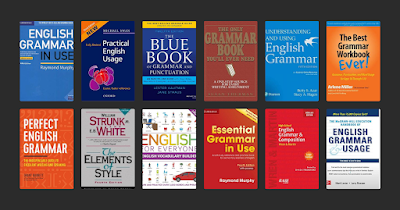20 Idioms to Boost Your IELTS Speaking Score
When it comes to IELTS speaking, using idioms can showcase your fluency and help you score higher. But not every idiom is appropriate for the test. Through my experience and research, I've compiled a list of 20 idioms that are not only commonly used but also versatile enough to fit into various IELTS topics. These idioms will make you sound more natural and confident.
What Are Idioms, and Why Use Them in IELTS?
Idioms are phrases whose meanings aren’t obvious from the literal words. For example, “spill the beans” means to reveal a secret. Using idioms in the IELTS speaking test demonstrates your ability to understand and use English in a natural way. However, don’t overdo it! Use idioms only when they fit naturally into your response.
20 Idioms to Use in IELTS Speaking
Here are 20 idioms that can be useful across different IELTS speaking topics, along with examples to help you use them effectively:
1. A blessing in disguise
Meaning: Something good that seemed bad at first.
Example: Failing that job interview was a blessing in disguise because I ended up finding a better opportunity.
2. Burn the midnight oil
Meaning: To work late into the night.
Example: I had to burn the midnight oil to prepare for my IELTS exam.
3. Piece of cake
Meaning: Something very easy.
Example: For me, discussing familiar topics in English is a piece of cake.
4. Break the ice
Meaning: To make people feel more comfortable in a new situation.
Example: In social situations, I try to tell a joke to break the ice.
5. Hit the nail on the head
Meaning: To describe something accurately.
Example: When I said time management is key to success, I think I hit the nail on the head.
6. Once in a blue moon
Meaning: Rarely.
Example: I only go to the cinema once in a blue moon because I prefer watching movies at home.
7. On cloud nine
Meaning: Extremely happy.
Example: I was on cloud nine when I received my university acceptance letter.
8. Cost an arm and a leg
Meaning: Very expensive.
Example: Studying abroad can cost an arm and a leg, but it’s worth it for the experience.
9. Under the weather
Meaning: Feeling unwell.
Example: I was under the weather last week, so I couldn’t focus on my studies.
10. The ball is in your court
Meaning: It’s up to you to make the next decision.
Example: The university has sent the offer, so now the ball is in your court.
11. Spill the beans
Meaning: To reveal a secret.
Example: My friend accidentally spilled the beans about my surprise party.
12. Actions speak louder than words
Meaning: What you do is more important than what you say.
Example: When it comes to trust, I believe actions speak louder than words.
13. Bite the bullet
Meaning: To face a difficult or unpleasant situation with courage.
Example: I had to bite the bullet and take the IELTS test again to improve my score.
14. Kill two birds with one stone
Meaning: To achieve two things at once.
Example: By studying at a library, I can focus better and access useful resources, killing two birds with one stone.
15. Go the extra mile
Meaning: To do more than what is required.
Example: I always try to go the extra mile when preparing for important presentations.
16. Food for thought
Meaning: Something to think about seriously.
Example: The teacher’s feedback gave me food for thought about how to improve my essay.
17. Pull someone’s leg
Meaning: To joke or tease someone.
Example: My brother loves pulling my leg about my cooking skills.
18. In the same boat
Meaning: In the same difficult situation as someone else.
Example: All the students preparing for IELTS are in the same boat, facing similar challenges.
19. Make a mountain out of a molehill
Meaning: To exaggerate a small problem.
Example: Don’t make a mountain out of a molehill; the issue isn’t that serious.
20. Let the cat out of the bag
Meaning: To reveal a secret unintentionally.
Example: She let the cat out of the bag about the surprise trip during our conversation.
Tips for Using Idioms in IELTS Speaking
Use Idioms Sparingly: Don’t overuse idioms. Two or three well-placed idioms in your test can leave a good impression.
Make Sure They Fit the Context: Only use idioms when they naturally fit into your answer. Forcing them can sound awkward.
Practice Them in Advance: Familiarize yourself with these idioms so you can use them comfortably during the test.
Final Thoughts
Using idioms in the IELTS speaking test is like adding a pinch of spice to your cooking—just the right amount can make a big difference. These 20 idioms are practical, easy to remember, and relevant for various topics you might encounter in the test. Practice using them in your daily conversations, and you’ll find yourself sounding more fluent and confident.
Good luck with your IELTS preparation! Feel free to share your favorite idioms or any success stories in the comments below.
Amir Jahangiri, Master TEFL expert
Email : Jahangiriamir@outlook.com
Telegram : Jahangiri_net
Mobile : +989155509663


Comments
Post a Comment